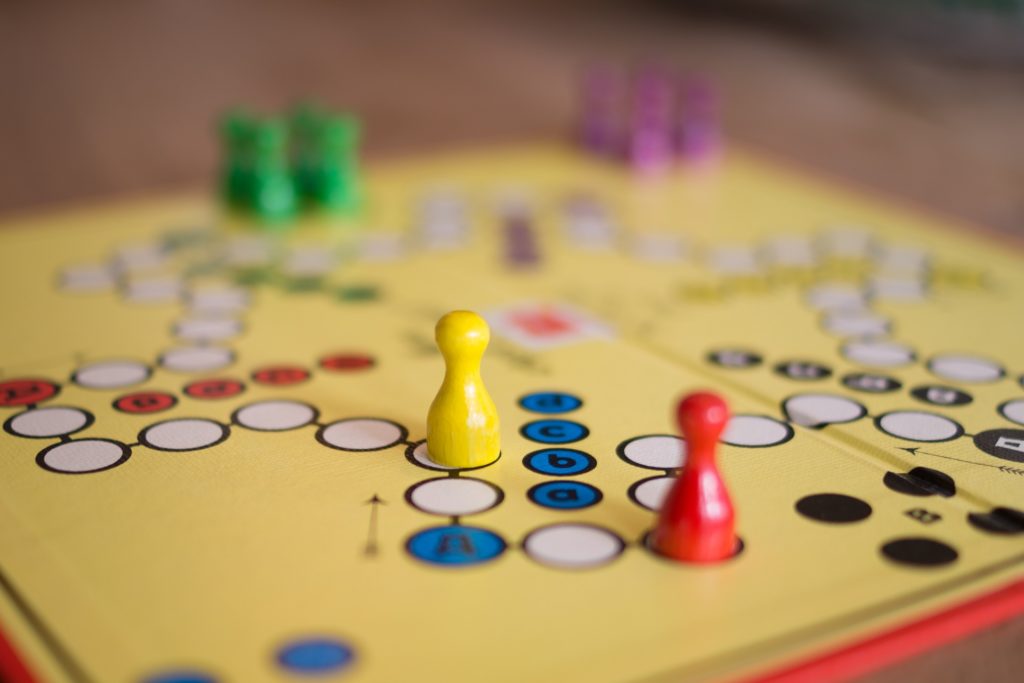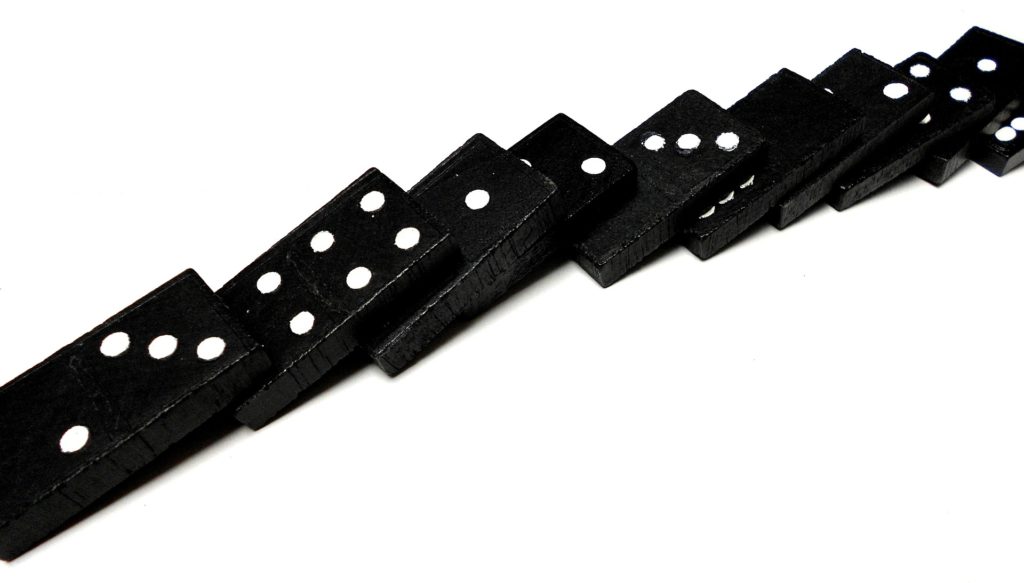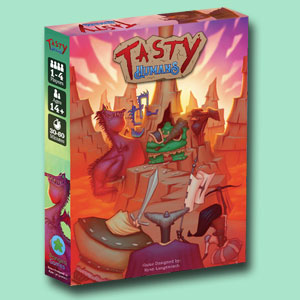Dev Diary posts are made to teach game development through specific examples from my latest project: Highways & Byways. Just here for Highways & Byways updates? Click here.
I’ve been making games for about 2 1/2 years now, and a lot of things in my life have clicked because of the ways of thinking I have adopted by making and playing games. I understand personal finance better because heavy euro games are about allocating resources. My anxiety has improved because I’ve sent thousands of messages to strangers online to build my Discord server. Even my fitness has improved because of this sedentary hobby. That’s because the strain of running a business teaches discipline.

Need help on your board game?
Looking for more resources to help you on your board game design journey?
Every once in a while in the board gaming community, you’ll see an article circulate about how board gaming is good for your brain. I firmly believe that playing and making board games can teach you some practical skills that transcend the tabletop. That’s why I’ll share my experiences.
1. Games trained me to start with the end and work backwards to achieve a goal.
Just about every game has a clear objective. It’s usually in the first paragraph of the rule book. Board games make the objectives clear, but they don’t make the path to achieving the objectives clear. When the goal is not crystal clear, I’ve now been taught to seek it out, whether or not it’s a goal in a game.
Clear goals make everything a little easier. In games, it’s victory points. In life, it might be retiring early, putting on lean muscle mass, or releasing a game. Once you pick a goal – even if it’s an imprecise one – you can start working backwards. I’ve learned to spot “victory points” in real life.
2. Games trained me to determine cause and effect when it’s unclear.
We live in a distracted world rife with an incredible number of possible lives. We’re forced to make decisions everyday about which path we go down. That can be overwhelming, but it’s not too unfamiliar to folks who’ve played euro games. A lot of times, victory points are determined at the end and there are a bunch of ways you can get those points. Nobody will tell you which path is the best, so you have to make educated guesses and adjust as you go. Sounds a bit like real life, doesn’t it?

Returning to my earlier examples…
- If I want to retire early, I need to learn to invest. Learning to invest requires learning how to allocate assets and pick the right funds. Getting money to fill up those funds involves budgeting and taking advantage of tax breaks.
- If I want to put on lean muscle mass, I have to eat a little more and lift heavy objects.
- How do you go about developing a game? Well, that’s what this blog is for 😉
3. Games taught me when to look and when to leap.
A lot of times, intelligent people won’t get anything done because they’ll overthink things. In board games, when you sit at the table forever and fail to make a move, you’re said to have analysis paralysis. You put everybody at an inconvenience. Eventually, you’re pressured into making a move – any move!
You can get analysis paralysis in life, too. Sometimes goals seem too big to grapple with, so you don’t start. It can cause you to procrastinate. I’ve been known to do this. Board games taught me that sometimes any move is better than no move. Sometimes getting started is good enough. Very rarely in well-designed games, or in life, will you get yourself into bad situations that you can’t fix.
4. The gaming business gave me basic business experience in a safe environment.
For all the expenses and public embarrassment that come with business failure, board gaming is still a pretty safe industry to fail in. Provided you bankroll your own game, don’t take out loans, and don’t make hard promises you can’t keep, you’ll land on your feet if your business collapses. It’s not like owning a restaurant or real estate.
Good thing, too. Running a business is hard as hell. I got an MBA and it still took me a couple of years to break even and get my feet under me. No matter what business you’re in, you have to learn to manage finances, create sales funnels, build an audience, and…oh yeah…make good products! The learning curve is steep, and frankly, I have a hunch that 90-95% of business hopefuls could benefit from struggling those first few years in a place where they won’t lose their shirt. There’s a lot of safe ways to get started in business, board gaming being thankfully among them.
5. Releasing a major product with my name on it taught me to be meticulous.
I like to go fast. Sometimes that leads to rushing through things. I figure many teenagers and young adults can relate to this. Releasing War Co. and getting ready to release Highways & Byways is slowly training me out of that bad habit and teaching me to be meticulous. Can you imagine how embarrassing it would be to release a product with a typo in the rule book? The fear alone was enough to slow me down. As a side benefit, I got better at my day job because I started slowing down when it was right to do so.
6. Learning to sell decreased my social anxiety.
I used to struggle with social anxiety a lot. I still kind of do, but it’s not as bad these days. Strangely enough, the act of building up a Discord server and selling games has helped a lot, even though I primarily do this online through social media direct messages. Why? It’s simple…I’ve been rejected a bunch. Tons and tons and tons of rejections. Rejections by the thousands.
Even though it’s digital, I’m calmer in face-to-face interactions as well. I know that somebody saying “no” to my request or even – gasp – somebody not liking me is not the end of the world. Simple exposure to things you’re afraid of in small doses over a long period of time can do wonders for your confidence. Plus, now I have a server of over 1,000 board game professionals and fans whose company I consistently enjoy to show for it.
7. The heavy load of running a business taught me sheer discipline.
It’s hard work running a business. You can’t do it in a four-hour workweek. Likewise, you can’t overcompensate and work 100 hours per week every week to push it along. It’s a long, slow process that takes years of consistent effort and 10, 15, 20, 25 hours per week. No matter how well you optimize your processes, how well you manage your time, or how much raw talent you have, systemic issues like building an audience will force you to take it slow.
I’ve spent hours at a time sending direct messages by hand. I’m writing two posts per week. I play-test my games until I’m nearly sick of them. Sometimes you just have to do that and it’s as simple as that.
Fortunately, discipline can be taught with repeated effort. It pays off in every other area of life. It shows in how consistent your workouts are, how regularly you fund your retirement accounts, and how nice you are to your spouse. Learning to do the same thing over and over again with poise even when the passion is (temporarily) gone is a great quality.
Has making or playing board games taught you any valuable skills? Has it made you smarter? Share your experiences in the comments below!
Most Important Highways & Byways Updates
- The rule art is done.
- The box art is in progress.
- I’m testing version I-4. It’s looking optimistic so far. Is this…the one?





2 thoughts on “7 Ways Making & Playing Board Games Could Make You Smarter”
I have been playing board games for 40 years now. Over the years I have created some games for fun. In the last 4 years I decided to really try to design and publish a board game.
It has taught me valuable skills in that I am wiser in how the gaming and game design industry works. But I feel my skills are not mearly complete until after I publish my first game through a successful Kickstarter.
Has it made me smarter? Yes and no. I have learned a lot more about actually designing a game and doing the research. However, I still feel dumb when it comes to trying to get the game to Kickstarter. I keep thinking what am I doing wrong, or what am I missing?
Even after you publish, there are still lots of skills to pick up – believe me!
As you continue to research and learn, it’s normal to feel like you’re doing something wrong or missing something. In reality, you’re probably not doing anything wrong. The learning curve is just really, really steep the first time you publish. It’s fun and engaging, but I think it’s important to remember that a lot of creators gloss over just how difficult creating games can be.